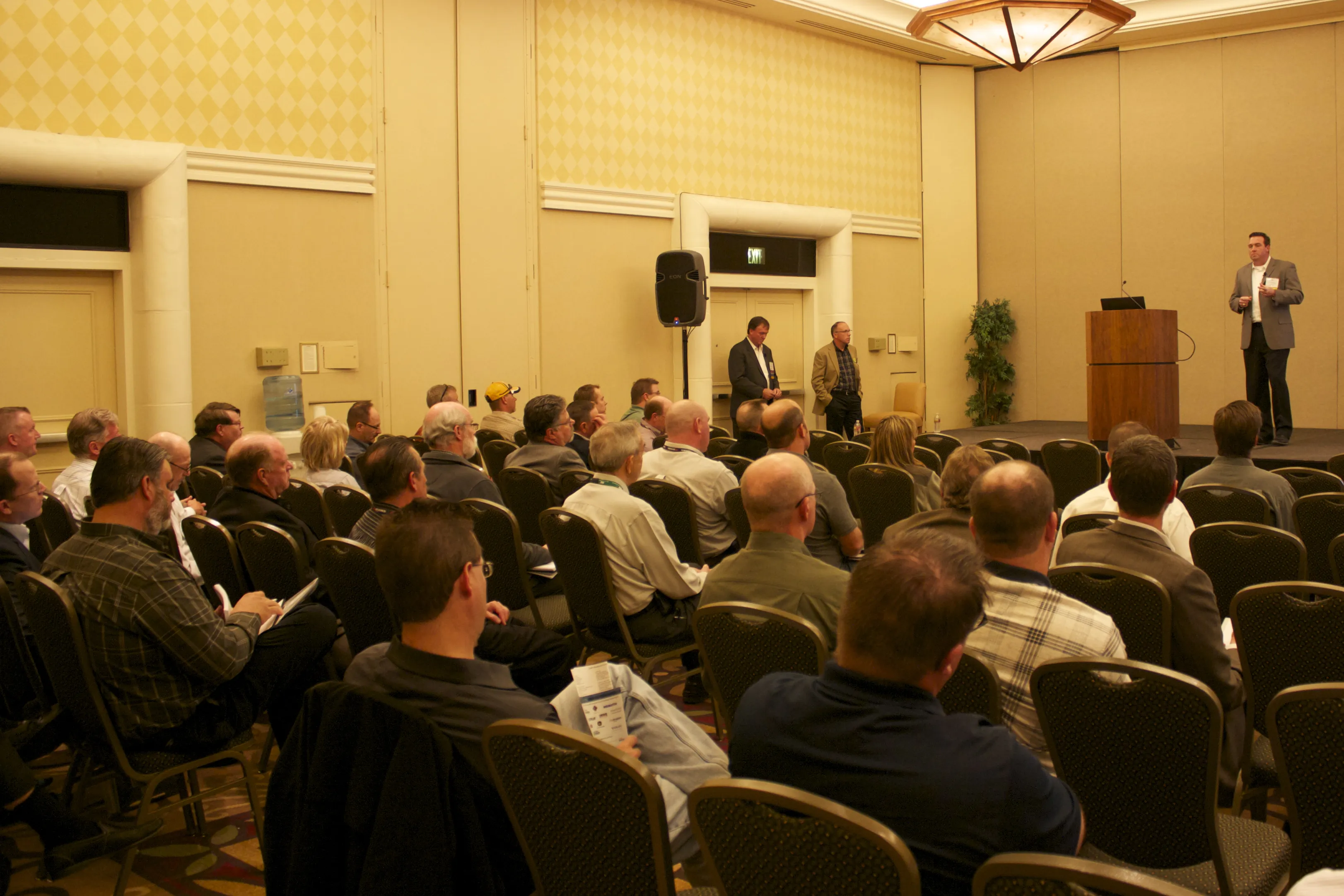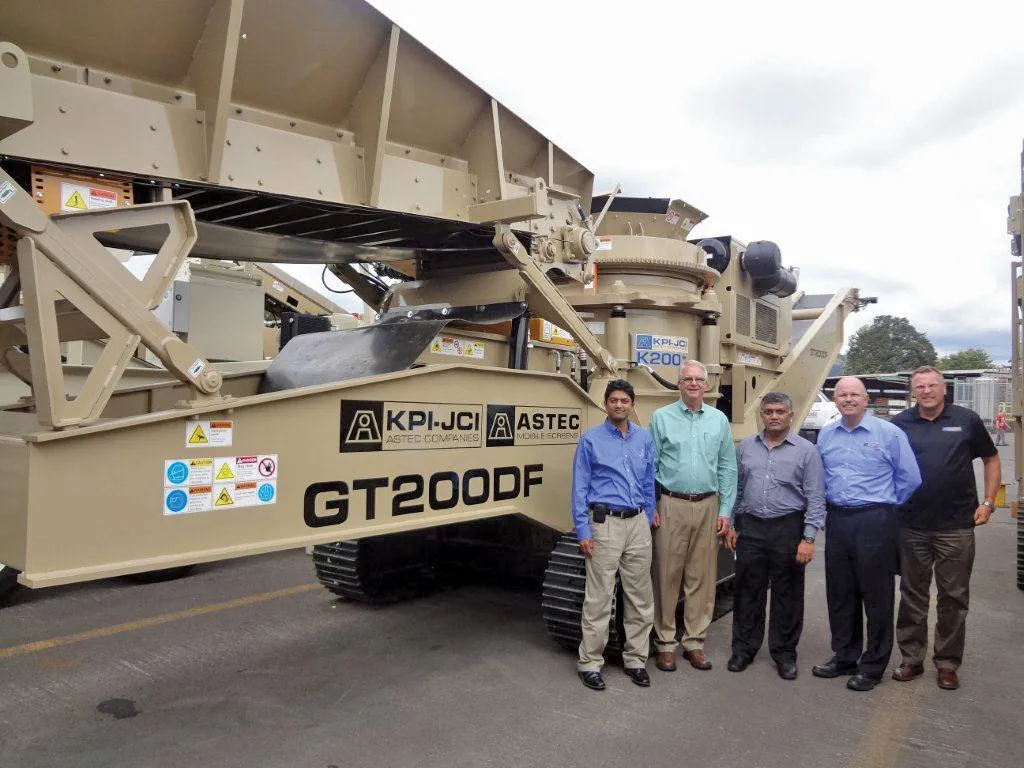The Association of Equipment Management Professionals (AEMP) will tackle the important issues of telematics, finance and Tier 4 engine emissions during its annual Asset Management Symposium (AMS). The two-day US-based AMS, a leading educational and networking event for asset management professionals, takes place in Louisville, Kentucky, on 30 and 31 October, 2012.
August 28, 2012
Read time: 3 mins

The 6469 Association of Equipment Management Professionals (AEMP) will tackle the important issues of telematics, finance and Tier 4 engine emissions during its annual Asset Management Symposium (AMS).
The two-day US-based AMS, a leading educational and networking event for asset management professionals, takes place in Louisville, Kentucky, on 30 and 31 October, 2012.
On the first day Bill Sauber, manager of remote technologies at2394 Volvo and member of the AEMP Telematics Committee, will introduce attendees to the basic concept and history of telematics, as well as the AEMP-led Telematic Standard.
Bill Purdie, president and founder of6470 MobileNet Inc.; Jeff Akers, president of 360Concepts; and Terry Rasmussen, fleet services manager at 178 Caterpillar, will speak on the latest industry advances in telematics. Meanwhile, experienced fleet managers John Meese, senior director of heavy equipment for 6471 Waste Management Inc.; Kerry Sudrla, corporate equipment operations and technical manager at 6472 Kiewit Corporation; and Chris Harrell, GPS and telematics manager at 6473 Granite Contracting, will speak about practical strategies for integrating telematics into a fleet.
The second and final seminar of day one will shift focus to finance. Attendees will hear from Rob Blackadar, vice president of national accounts at318 Ritchie Bros.; and Jeff Jeter, president of Americas at 714 IronPlanet, on used equipment values. Brett Hoffman, senior appraiser at JJ Kane Appraisal, will provide insight into equipment appraisals.
Immediately following the seminar, Peter Gregory, senior vice president of national accounts at Wells Fargo Equipment Finance; Brad Coverdale, director product support,6476 Sunbelt Rentals; and Gregg Nierenberg, vice-president of fleet operations for 3978 Hertz, will lead a panel discussion on the pros and cons of renting, leasing or buying equipment, and the bottom-line impacts of each option.
A highlight of this year’s Symposium will be Peter Blake, chief executive of Ritchie Bros. Auctioneers, who will deliver a keynote address during the Tuesday evening reception and dinner on how the shifting business climate has changed the way companies view equipment investments.
The Symposium’s second day will focus on Tier 4. Attendees will gain a thorough understanding of how Tier 4 affects the dealer and what it means for the end user. Experts leading this discussion include Todd Coffey, corporate services manager for Brandeis Machinery & Supp;, Eric Matthewson, project manager and Tier 4 dealer readiness expert for Caterpillar; and Bill Pyles, vice president of service for6474 Nortrax Inc.
Following that Ken Hill, vice president of Wearcheck USA, will give presentation on analysing machinery fluid conditions.
Rounding off the seminar, contamination control experts Howard Chesneau, president of6477 Fuel Quality Services, along with Pyles and Matthewson, will cover contaminants in today’s equipment through a review of implementation and control initiatives.
New this year, an extensive, panel-wide Q&A session will follow each half-day session, offering deeper discussion and insight into each topic.
In addition to educational seminars, discussions and networking, attendees can take advantage of AEMP’s Professional Development Institute (PDI). Through the PDI, participants are able to attend classes relevant to AEMP’s professional certifications: Certified Equipment Manager (CEM), Equipment Manager Specialist (EMS) or Certified Equipment Support Professional (CESP). Certification exams are scheduled on 1 November, 2012.
The two-day US-based AMS, a leading educational and networking event for asset management professionals, takes place in Louisville, Kentucky, on 30 and 31 October, 2012.
On the first day Bill Sauber, manager of remote technologies at
Bill Purdie, president and founder of
The second and final seminar of day one will shift focus to finance. Attendees will hear from Rob Blackadar, vice president of national accounts at
Immediately following the seminar, Peter Gregory, senior vice president of national accounts at Wells Fargo Equipment Finance; Brad Coverdale, director product support,
A highlight of this year’s Symposium will be Peter Blake, chief executive of Ritchie Bros. Auctioneers, who will deliver a keynote address during the Tuesday evening reception and dinner on how the shifting business climate has changed the way companies view equipment investments.
The Symposium’s second day will focus on Tier 4. Attendees will gain a thorough understanding of how Tier 4 affects the dealer and what it means for the end user. Experts leading this discussion include Todd Coffey, corporate services manager for Brandeis Machinery & Supp;, Eric Matthewson, project manager and Tier 4 dealer readiness expert for Caterpillar; and Bill Pyles, vice president of service for
Following that Ken Hill, vice president of Wearcheck USA, will give presentation on analysing machinery fluid conditions.
Rounding off the seminar, contamination control experts Howard Chesneau, president of
New this year, an extensive, panel-wide Q&A session will follow each half-day session, offering deeper discussion and insight into each topic.
In addition to educational seminars, discussions and networking, attendees can take advantage of AEMP’s Professional Development Institute (PDI). Through the PDI, participants are able to attend classes relevant to AEMP’s professional certifications: Certified Equipment Manager (CEM), Equipment Manager Specialist (EMS) or Certified Equipment Support Professional (CESP). Certification exams are scheduled on 1 November, 2012.








